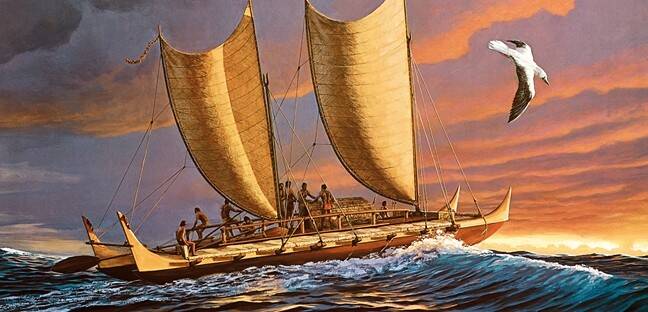
Opening – Instinct in a World of Change
Imagine being dropped in the middle of a vast ocean with no compass, no map, no GPS. That’s what leadership often feels like today. We rely on instinct, on gut feelings. But instinct, while valuable, is shaped by our past, not by the future we’re moving into.
The Problem – The Limits of Instinct
Our ancestors used instinct to survive storms, predators, and scarcity. But today’s storms are technological disruption, demographic shifts, and global crises. Relying only on instinct is like steering a ship by watching the wake—you know where you’ve been, but not where you’re going.
The Turn – Imagination as Navigation
Wayne Gretzky said he skated not to where the puck was, but to where it was going. That’s navigation. But here’s the catch: if you skate only to where you expect the puck to be, you’ll miss it when the game changes. The trick isn’t clairvoyance. It’s reading the ice—the speed, the angle, the players—in real time. That’s experience, not prediction.
The Call – From Instinct to Imagination
What gets us beyond instinct is imagination. The ability to envision not just one future, but many. To test, to stress, to explore possibilities, and to make choices—not based on fear or habit, but based on clarity and courage.
Illustrations – Stories of Navigation
In Rome, a handful of elites cornered the grain supply. They grew rich. But ordinary people starved, riots broke out, and Rome had to invent a grain dole just to survive. Centuries later, Europe’s guilds locked their trades behind closed doors. Members were secure, but innovation slowed to a crawl. In both cases, systems navigated by instinct—hoard, protect, conserve—and failed when conditions changed.
Contrast that with the Polynesian voyagers who crossed the Pacific. With no compasses, they read the stars, the waves, the birds. They combined instinct with imagination, building a mental map larger than any they had ever seen. They dared to navigate into the unknown—and found new worlds.
The Bridge – Applying This Today
Today, leaders face their own open seas. AI, climate change, shifting economies. The temptation is to cling to instinct—to hold tighter to what worked yesterday. But survival—and flourishing—require imagination. Reading the ice. Reading the stars.
Closing – A Call to Action
We cannot predict the future. But we can prepare for it. We can build strategies that are not static plans, but living compasses. If instinct is the memory of survival, imagination is the courage to navigate what has never been seen.
So the question is not: Where is the puck? The question is: What game is being played? And will we have the imagination to skate into the unknown?